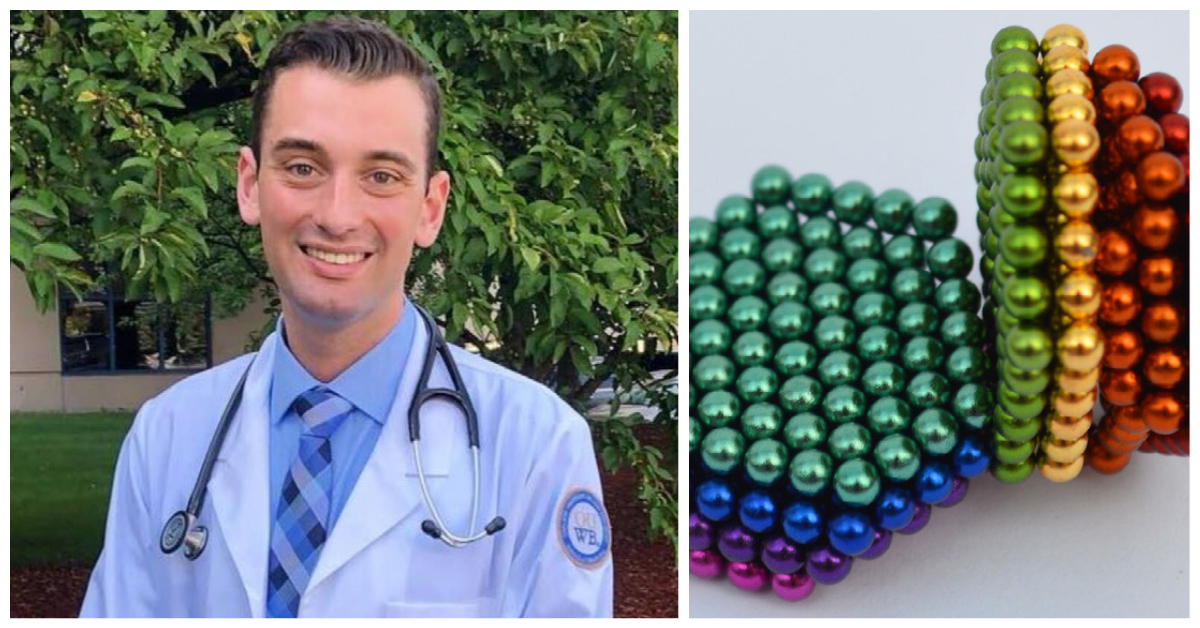
An Oakland University William Beaumont School of Medicine student is part of a nationwide cohort bringing awareness today to the increasing number of children dangerously ingesting high-powered magnets.
Ben Malamet, a rising M4, is part of the American Academy of Pediatric’s Trainees for Child Injury Prevention (T4CIP) program.
The training program’s first cohort of more than 60 from 44 institutions is working to teach trainees public health approaches and community engagement to prevent child and adolescent injury and violence.
Today is its first day of action with the focus on raising awareness of the dangers of ingesting high-powered magnets (oftentimes sold under the brand names “Buckyballs” or “Zen Magnets”).
“As future physicians we have an incredible opportunity to make a difference in the lives of the patients that we interact with every day,” said Malamet.
“By being an advocate and getting out there in the general community, we’re able to prevent a lot of patients from having to come and see us. It allows us to impact more patients than just the ones that we see in clinic.”
The cohort started working on the high-powered magnets campaign in January, according to Malamet.
The magnets are up to 10 times stronger than ordinary magnets. What makes them especially dangerous, said Malamet, is their size: about as big as a BB pellet.
“The issue is when they start ingesting these magnets, they’ll go into the stomach and start traveling through the intestine,” he said. “Because they’re so strong, they can actually attract to each other across the intestine and cause really bad damage.”
According to the Washington Post, the number of children ingesting high-powered magnets has surged in recent years. The National Poison Data System reported nearly 1,600 calls in 2019 after a federal court lifted the Consumer Product Safety Commission’s four-year ban on the magnets.
Because of the increase in injuries and lift of the ban, T4CIP decided to focus on bringing awareness to the dangers posed by the magnets for its first day of action.
Malamet said the nationwide campaign will largely be conducted via social media, using hashtags that include #magnetsafety. Other efforts will include members of the cohort presenting lectures to community pediatricians.
Overall, Malamet said, as a future physician, he has benefitted tremendously from the experience.
“It’s been a really awesome opportunity to learn all of these public health skills, make a big impact with all of the other participants across the country, and getting a chance to learn from pediatricians who are experts in their field,” he said. “Representing OUWB in this cohort is pretty awesome.”
For more information, contact Andrew Dietderich, marketing writer, OUWB, at [email protected].
To request an interview, visit the OUWB Communications & Marketing webpage.
NOTICE: Except where otherwise noted, all articles are published under a Creative Commons Attribution 3.0 license. You are free to copy, distribute, adapt, transmit, or make commercial use of this work as long as you attribute Oakland University William Beaumont School of Medicine as the original creator and include a link to this article.

